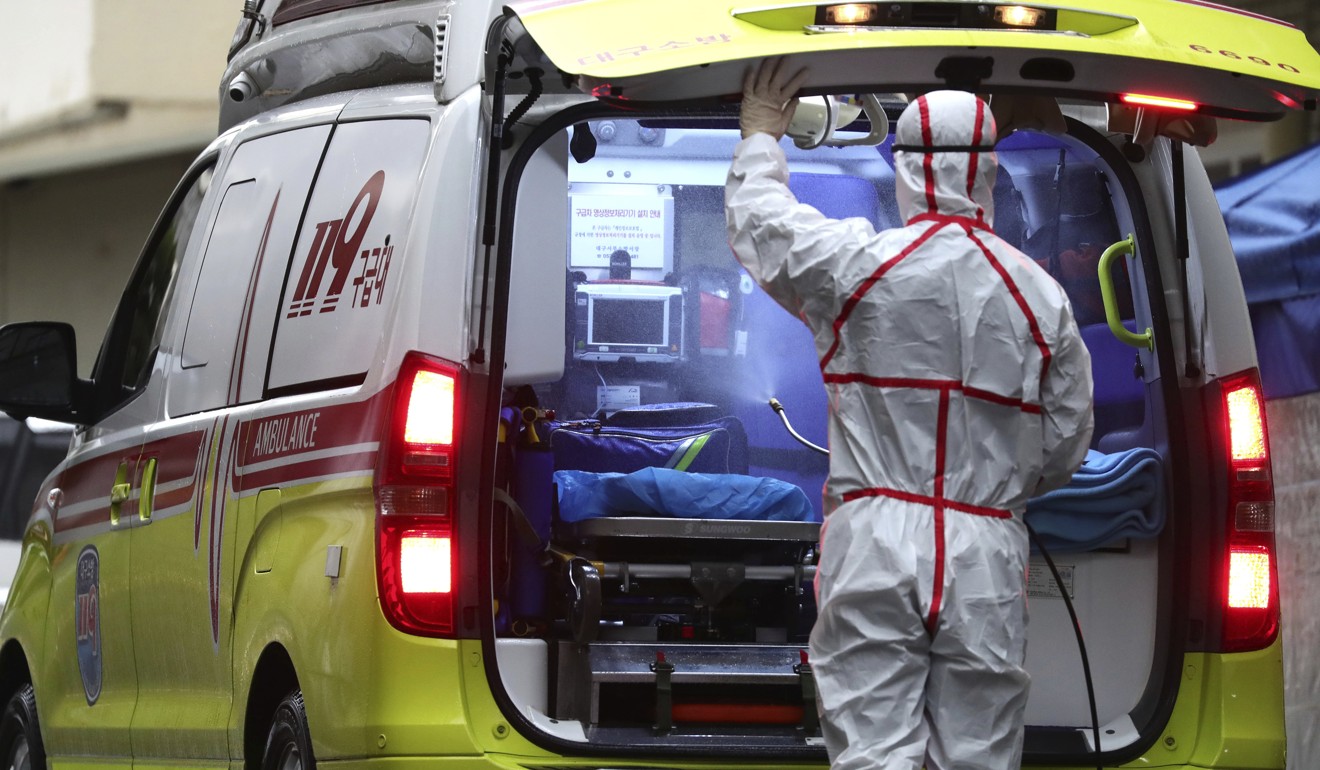
Coronavirus: Singapore develops new serological test to establish links between cases
- The test can detect antibodies in blood samples for contact tracing and establishing links between cases
- The city-state has also banned short-term visitors from the South Korean cities at the heart of a surge in virus cases
The test kit by Duke-NUS Medical School researchers can detect antibodies in the blood samples of infected patients, even if they have recovered.
From Sars to Covid-19, what lessons has Singapore learned?
Health authorities said it was not common to be able to link up clusters of infections together, and described the development as a “big success”.
“This is important for us because without any of the established links, there’s always going to be some uncertainty in how transmissions took place,” the health ministry said.
“When you don’t have the ability to connect various groups of people having the infections together, there will be a concern on whether or not that this could have been spread by someone unknown or some mysterious person.”
Singapore on Tuesday reported one new virus case – a partner of a patient – bringing its total number of cases to 91. Of these, 33 are still in hospital while 58 have been discharged.

“While we have seen the number of new cases here in Singapore remain low each day over the last few days, we must be aware that the global situation remains dynamic and we cannot afford to be complacent,” said the country’s health minister, Gan Kim Yong.
“There has been a sudden increase in cases in the Republic of Korea, Italy, and Islamic Republic of Iran, and the World Health Organisation has also noted that these developments are deeply concerning.”
Singaporeans and long-term pass holders who are returning from the affected areas will have to self-quarantine for 14 days, he said, while stressing an earlier advisory to citizens to avoid non-essential travel to the affected areas.
“About 75 per cent of the [South Korean] cases are linked to the two clusters, the church and the hospital, and centred on two cities,” said Wong. “That’s why we think that these are the two cities of higher risk and we are putting in measures to restrict travel on [them].”
The virus, which first emerged in the Chinese city of Wuhan late last year and causes a pneumonia-like disease known as Covid-19, has infected more than 80,00 people and killed almost 2,700 in China alone, although the WHO said earlier that the epidemic there appears to be on the decline.
South Korea has the most virus cases outside China, reporting its 11th death and 169 new cases on Wednesday, for a total of 1,146.

Wong said uncertainties would arise as the global situation evolves.
He said Singapore could put in place travel restrictions for China and South Korean cities but questioned if the trade-reliant city state could afford to shut itself out from the world.
“If the virus truly transmits everywhere in the world, we have to expect another wave of new imported cases coming into Singapore and we have to be prepared for that,” he said. “There might well be a scenario where the virus becomes endemic in the human population and ... we have to keep calm and carry on with life, continue to live life as it is but with appropriate precautions.”

